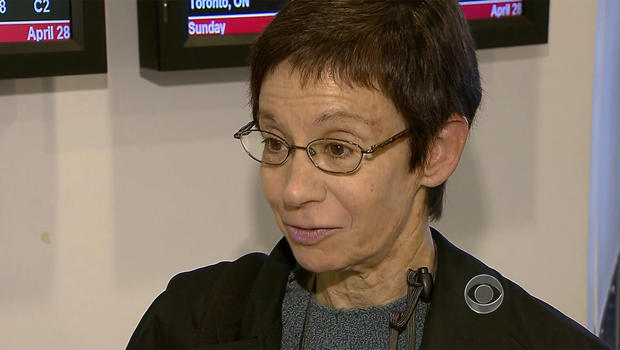Flight operations return to normal as furloughs lifted
(CBS News) WASHINGTON - Airport runways began to return to normal Sunday after flight delays caused by congressional spending cuts forced furloughs on air traffic controllers. The delays were the most visible consequences of the across the board spending cuts known as sequestration, but fallout from cuts are about to come.
Travelers breathed a sigh of relief as air traffic controllers returned to work. North Carolina native Margie Satinsky was relieved her travels through New York went smoothly.
"I'm delighted," she said. "I sat on the runway a couple of hours a couple of days ago."
FAA hopes to establish normal flight operations by end of day
Watch: WH: FAA furlough fix "good news," but inadequate
Schieffer: D.C. gridlock vanishes, when Congress is inconvenienced
Air-traffic-control furloughs to be suspended soon, FAA says
With the FAA crisis over, other budget reductions will roll outside the airline industry sequestration cuts continue.
This week, federal jobless benefits in California, New Hampshire and Ohio will be slashed by double digits: Eighteen percent, 17 percent and 16 percent respectively.
Those cuts will take money out of the pockets of the newly unemployed.
In his weekly address, President Obama warned that unless Congress agrees to find new ways to tax and spend, the painful budget cuts will continue.
"And we can't just keep putting band-aids on every cut," the president said.
The White House says many of those cuts will impact the most vulnerable, including 70,000 children who get meals through the Head Start programs and nutrition programs for low income women.
They don't have the type of muscle needed to get bipartisan support, like cancer clinics, according to Sarah Binder with the Brookings Institute.
"Clinics that are paid by Medicare that are affected by sequestration, who are saying, 'we have long lines, we're turning away patients, rural patients have to travel.' I believe they are going to try to organize [and] try to put that type of bipartisan pressure on Congress," Binder said.
Any bending on Capitol Hill won't come at least until next month. Negotiations are likely to go through in the fall.


